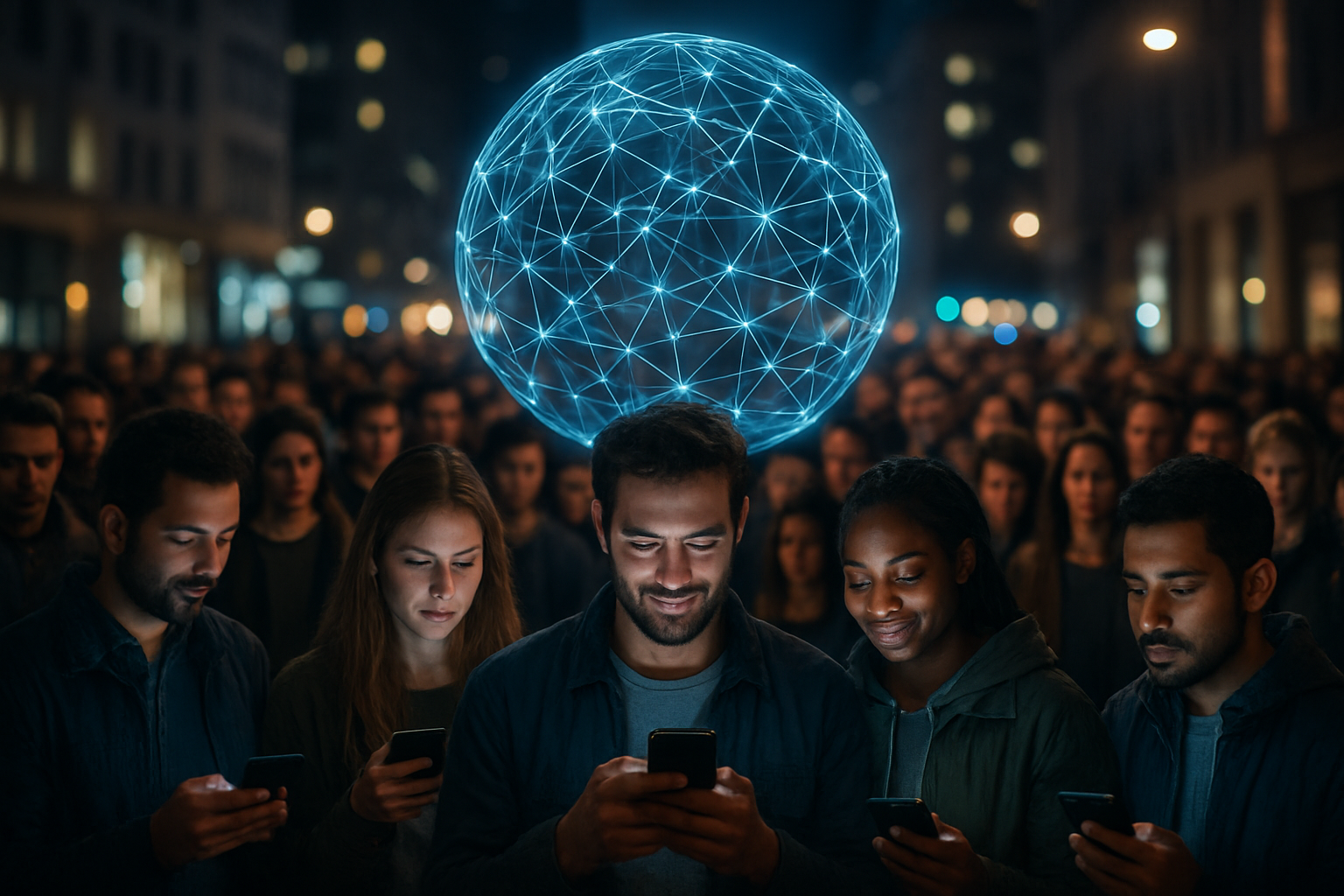Collective Consciousness in the Digital Age
From tribal drums to global tweets, human communication has evolved dramatically. Today, we're witnessing a new phenomenon: the emergence of a digital collective consciousness. This interconnected web of thoughts, experiences, and ideas is reshaping how we perceive and interact with the world around us. Read below to explore how this digital hive mind is transforming society and what it means for our future.

The Birth of Digital Collective Consciousness
The roots of our current digital collective consciousness can be traced back to the early days of the internet. As rudimentary chat rooms and message boards evolved into sophisticated social networks, the ability for individuals to connect and share information across vast distances became increasingly seamless. This technological progression coincided with a shift in how people viewed their place in the world, moving from purely local identities to seeing themselves as part of a global community.
The explosion of smartphone usage and mobile internet access in the 2010s marked a turning point. Suddenly, people could tap into this collective consciousness from anywhere, at any time. This constant connectivity created a feedback loop of information sharing and consumption that blurred the lines between individual and collective thought processes.
The Mechanics of Digital Hive Mind
At its core, the digital collective consciousness operates through a complex interplay of algorithms, user-generated content, and real-time interactions. Social media platforms use sophisticated algorithms to curate content, creating personalized information ecosystems for each user. These algorithms don’t just reflect individual preferences; they actively shape perceptions and behaviors by determining what information reaches each person.
Simultaneously, the ease of content creation and sharing allows individuals to contribute their thoughts, experiences, and opinions to the collective pool of knowledge. This democratization of information flow means that trends, ideas, and movements can emerge and spread with incredible speed, often bypassing traditional gatekeepers of information.
Implications for Society and Culture
The rise of digital collective consciousness has profound implications for how societies function and cultures evolve. On one hand, it has the potential to foster greater understanding and empathy by exposing people to diverse perspectives and experiences. Global movements for social justice, environmental awareness, and political change have gained momentum through the power of digital collective action.
However, this interconnectedness also presents challenges. The same mechanisms that allow for rapid spread of information can also facilitate the proliferation of misinformation and conspiracy theories. Echo chambers and filter bubbles can reinforce existing beliefs and polarize opinions, making it difficult for individuals to engage with opposing viewpoints.
Redefining Identity in the Digital Age
As people spend more time engaging with this digital collective consciousness, questions of identity become increasingly complex. Individuals now have the ability to curate multiple online personas, each reflecting different aspects of their personality or aspirations. This fluidity of identity challenges traditional notions of self and raises questions about authenticity in the digital age.
Moreover, the constant exposure to a global pool of ideas and lifestyles is reshaping cultural norms and personal aspirations. People in remote corners of the world can now participate in global trends and movements, leading to a kind of cultural cross-pollination that was unimaginable just a few decades ago.
The Future of Collective Digital Consciousness
As we look to the future, the evolution of digital collective consciousness shows no signs of slowing down. Emerging technologies like virtual and augmented reality promise to create even more immersive and interconnected experiences. The development of brain-computer interfaces could potentially allow for direct thought-to-digital communication, further blurring the lines between individual and collective cognition.
These advancements raise important ethical and philosophical questions. How will privacy be protected in a world of increasingly interconnected minds? What are the implications for free will and individual agency when our thoughts and behaviors are so heavily influenced by collective digital processes?
As we navigate these uncharted waters, it’s crucial to approach the development of digital collective consciousness with a balance of enthusiasm and caution. The potential for global collaboration, rapid innovation, and shared understanding is immense. However, we must also be vigilant in preserving individual rights, promoting digital literacy, and ensuring that this powerful tool serves to enhance rather than diminish our humanity.
The digital collective consciousness represents a fundamental shift in how we exist as social beings. It’s a testament to human ingenuity and our innate desire for connection. As we continue to shape this global network of minds, we have the opportunity to create a more informed, empathetic, and united world. The challenge lies in harnessing its power responsibly, ensuring that as we become more connected, we don’t lose sight of the individual voices and diverse perspectives that make our collective consciousness truly rich and meaningful.






